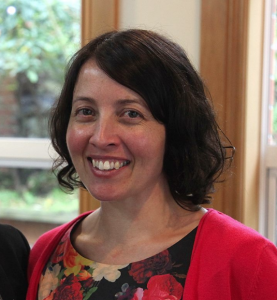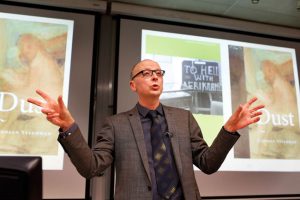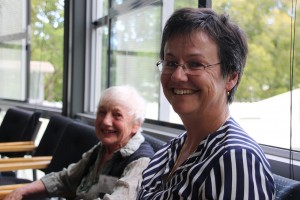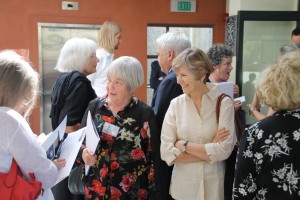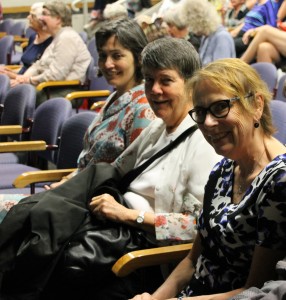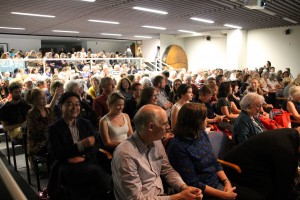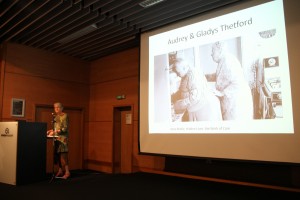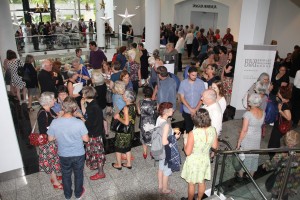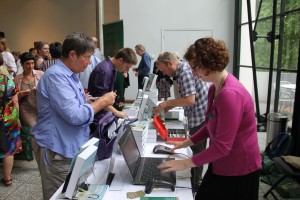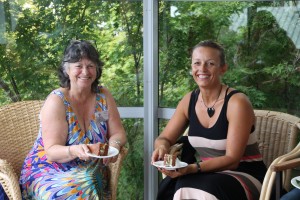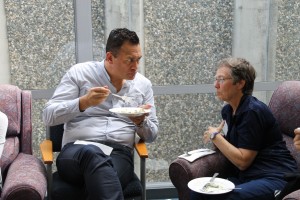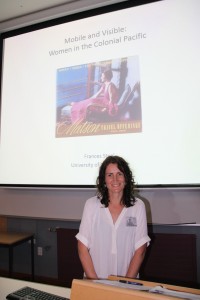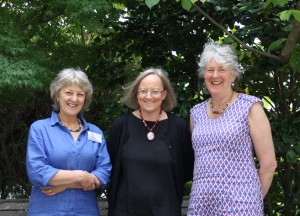Ockham Book Awards 2017
Posted on by Angela Wanhalla
Warmest congratulations to Centre member Barbara Brookes, whose magnificent book A History of New Zealand Women has been shortlisted for the Illustrated Non-Fiction category in the Ockham New Zealand Book Awards!
Posted in Book Prize, Centre News | Tagged barbara brookes, Ockham Book Awards
CROCC Successes
Posted on by Lachlan Paterson
The Centre would like to congratulate recent successes of our members.
Earlier this month the Royal Society of New Zealand announced the successful applicants for its prestigious Marsden Fund. Centre member, Dr Jane McCabe won a three-year Marsden Fast-Start research grant, valued at $300,000 for her new project “Splitting up the farm? A cross-cultural history of land and inheritance in Aotearoa”.
Jane will be investigating two rural districts at different ends of the country, the Taieri in Otago and the Hokianga in Northland, looking at how people of various ethnic backgrounds owned and inherited land. This project marks a shift in focus from Jane’s previous research around her PhD topic on the “Kalimpong Kids” on teenage Indian migrants sent to New Zealand in the early twentieth century.
Last week Centre director, Professor Tony Ballantyne was awarded the Humanities Aronui Medal by the Royal Society of New Zealand. This medal recognises his work over time in reshaping scholarly thought on British imperial history. In particular Tony has advanced the metaphor of “webs of empire” to explain the nature of the British Empire, that it was less a wagon wheel, with London as the hub, and more like a spider web with multiple interconnections between nodes.
Humanities Aronui Medal: For innovative work of outstanding merit in the humanities. Citation: To Anthony John Ballantyne for reshaping the scholarly interpretation of British imperial history by demonstrating the importance of networks, cultural difference and mobility, and reconstructing the centrality of colonialism and empires in the making of the modern world.
We are also very pleased to note that Professor Hamish Spencer of Genetics Otago, who co-organized the CROCC symposium ““Eugenics in British Colonial Contexts: Australia, Canada, New Zealand and South Africa” in February 2015 was the recipient of the Callaghan Medal “for an outstanding contribution to science communication and raising public awareness of the value of science to human progress” for his work with with Ngai Tāmanuhiri, and the people of Tolaga Bay/Uawa.
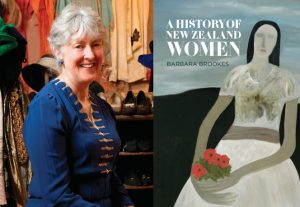 Last but not least, it is wonderful news that Professor Barbara Brookes’, A History of New Zealand Women, has been long-listed for the Illustrated Non-Fiction Award for the 2017 Ockham NZ Books Awards. The judges will announce their shortlist on March 7 next year, and the winner will be announced on May 16 at the Auckland Writers Festival. Her book provides a wide-ranging and comprehensive history of New Zealand as seen from a female perspective. Barbara has long been a leader in the field of New Zealand women’s history, with CROCC honouring her and her work at the “Making Women Visible” conference in February this year.
Last but not least, it is wonderful news that Professor Barbara Brookes’, A History of New Zealand Women, has been long-listed for the Illustrated Non-Fiction Award for the 2017 Ockham NZ Books Awards. The judges will announce their shortlist on March 7 next year, and the winner will be announced on May 16 at the Auckland Writers Festival. Her book provides a wide-ranging and comprehensive history of New Zealand as seen from a female perspective. Barbara has long been a leader in the field of New Zealand women’s history, with CROCC honouring her and her work at the “Making Women Visible” conference in February this year.
Posted in Centre News, Prize, Research Grant | Tagged barbara brookes, Callaghan Medal, Humanities Aronui Medal, jane mccabe, Marsden Fund, NZ book awards, royal society of New Zealand, Tony Ballantyne
Making Women Visible Conference
Posted on by Angela Wanhalla
A highly successful conference on women’s history was held this week at the University of Otago. It began with a keynote address and public lecture from Professor Barbara Brookes at Otago Museum’s Hutton Theatre, which was filled to capacity, followed by the launch of Barbara’s new book, A History of New Zealand Women (Bridget Williams Books) in the museum’s Atrium. A large and excited crowd gathered to celebrate this achievement.
The publication of Barbara’s landmark survey history of New Zealand women was marked by a conference, Making Women Visible, which had over 70 papers on the programme and attracted 150 delegates from across New Zealand, Australia, Canada and South Africa. Organised by Centre member Angela Wanhalla, and Jane McCabe, Katie Cooper, Sarah Christie and Jane Adams, with help from Emma Gattey, Violeta Gilabert and Radhika Raghav, the conference was made possible with financial support from CRoCC, the University of Otago’s Continuing Education Fund, and the Women’s Studies Association of New Zealand. This funding support enabled the organisers to put together a diverse programme, host a special forum on women’s history in the public sphere, as well as bring outstanding scholars to Dunedin as keynote speakers.
You can find out more about the conference at Storify, where the organisers have collated social media comment, photos and video of the proceedings. Also see the Making Women Visible Album on the University of Otago’s Department of History and Art History Facebook page to view images of the book launch and the conference. A much fuller description of the conference will appear on the New Zealand Women’s History Caucus Blog soon.
Here are a few images from the launch and conference. Click pictures to enlarge.
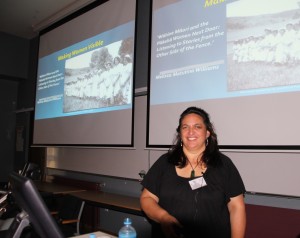
Melissa Matutina Williams gave a keynote address on the intersections between Māori and Pākehā women’s histories
Posted in Book Launch, Conference | Tagged barbara brookes, Book Launch, conference, making women visible, women's history
CFP: Making Women Visible: A Conference in Honour of Barbara Brookes
Posted on by Angela Wanhalla
Making Women Visible: A Conference in Honour of Barbara Brookes
15-17 February 2016, University of Otago.
Making Women Visible honours Professor Barbara Brookes, one of New Zealand’s most important scholars, who has worked at the cutting-edge of historical enquiry for several decades. Over the course of her career, Barbara’s scholarship has encompassed diverse topics (including reproductive politics, mental health, film, photography, performance, race relations, disability, sexuality and feminism). These topics have been approached in imaginative ways (biography, the histories of emotion, comparative and transnational approaches), but throughout she has consistently placed women at the centre of her work.
This conference (15-17 February 2016) not only celebrates a distinguished career, but also marks the arrival of Barbara’s much-awaited survey history of New Zealand women, which will be officially launched as part of the conference programme. Its publication invites a renewed focus on New Zealand women’s history. It has been over twenty years since the suffrage centenary that was the catalyst for the publication of a number of important books, including Sandra Coney’s foundational survey history, Standing in the Sunshine. Since 1993, the number of books, edited collections, articles and theses concerned with aspects of women’s history has greatly expanded and the methodological approaches have undergone evolution. We think it is time, therefore, to reflect on the body of scholarship produced by historians since the early 1990s – to consider its impact on the teaching, researching, and writing of women’s history since then and also to look forward to where the field is headed.
The conference theme focuses on one of the core goals of women’s history, which has been to make women visible, therefore we invite papers that address ‘visibility’ from a variety of disciplinary perspectives. The conference committee particularly invites proposals for individual papers and panels that reflect Barbara’s areas of research, speak to the theme of visibility and consider the generation of scholarship since the early 1990s with a view to what has changed and what challenges lie ahead. We are especially keen to receive paper proposals from postgraduates as well as those working in the arts and heritage sector.
In addition to streamed paper sessions, the conference will feature special forums led by two prominent New Zealand historians, Professor Charlotte Macdonald and Professor Margaret Tennant.
Professor Barbara Brookes will offer a keynote address, to be followed by a conference reception, and the launch of her new book, A History of New Zealand Women (Bridget Williams Books, 2016).
A key outcome will be the publication of an edited volume of essays arising from the conference.
Please submit a 250-word abstract along with a short biographical statement by 31 August 2015 to crocc@otago.ac.nz
If you wish to propose a panel, please provide a panel title, along with abstracts and biographical statements for each presenter, and submit it to crocc@otago.ac.nz by 31 August 2015.
Conference committee: Jane Adams, Katie Cooper, Jane McCabe, Sarah Christie and Angela Wanhalla (University of Otago)
Posted in Conference | Tagged barbara brookes, Book Launch, conference, New Zealand history, women's history

